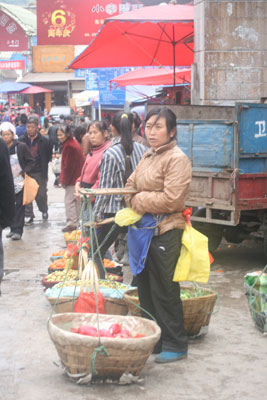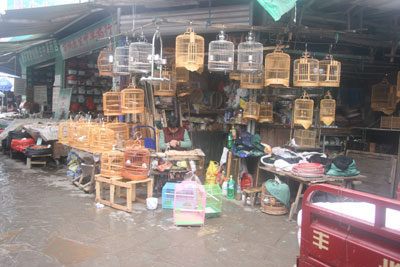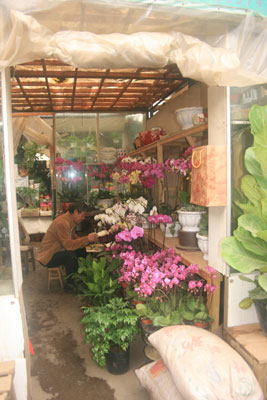Public transport in rural China
This item appears on page 32 of the March 2013 issue.
After the local travel company I was using canceled the last six days of my prepaid tour of China in October ’11, I had no choice but to get myself from Guiyang, in rural Guizhou province, to the international airport in Guangzhou for my flight home. This was no easy task, since very few people in China speak English and almost all of the signs are in Chinese.
Fortunately, my hotels (which I had booked, myself) were 4- and 5-star establishments, so desk staff were able to assist me in getting to and from bus and train stations and to a few local sites.
Before leaving Guiyang, I wanted to do some sightseeing in Kaili. In order to take the train there, hotel management sent a staff member with me in a taxi to the rail station. He bought my ticket (about $26), then took me to the McDonald’s next door to wait till the train came in a couple hours.
I sat next to a local woman who spoke no English. She grabbed my ticket, noted that we were on the same train and nodded at me, indicating she would help. That was a good thing, since I had no idea where the correct platform was. I was so antsy that she finally took me into the hordes of people to get closer to the departure gate.
Once aboard, the conductor made sure I was in the correct seat. The ride was scheduled to be about three hours; however, the train would run a few minutes and then stop for half an hour, continuing in that manner for a journey of seven hours.
I finally had to relent and use the bathroom, which was of the type found in most of rural China: an open hole in the floor, with, of course, no toilet paper.
At the destination, I made my way to the street to get a taxi to the hotel. Several people jumped in with me. I think I got stuck with most of the bill, but at that point I didn’t care, as long as I got to the hotel.
For my return to Guiyang, I decided to take the bus. Again, the hotel sent someone with me to purchase the ticket, which, strangely, at about $56, was much more expensive than the train ticket. He also took me directly to the gate and put me on the vehicle.
This trip was supposed to take two hours. After 2½ hours it stopped at a gas station. This thoroughly confused me. I saw that most people were headed to a bathroom, so I jumped off and got on the end of the line to use the facilities, hoping that my luggage and the bus would be there on my return. They were.
After a couple of hours we arrived at a field in the middle of nowhere. Apparently, I had taken an “international” bus instead of a local.
People eager for a tip took my suitcase and backpack to a waiting taxi. I gave the driver the card supplied for me by my hotel in Kaili, which told him where I wanted to go, but he did not understand!
With my hands, I insisted that he pull over to the side of the road and phone the hotel. After at least a 10-minute conversation with the hotel, he started off again, apparently knowing the desired location.
During the 1½-hour drive he picked up a young girl. I was still confused. She pulled out her cell. On the screen was translated into English, “He knows where to go and will be there soon.”
Then we hit the typical bumper-to-bumper traffic of a larger city in China. Sometime later I was relieved when we pulled into the driveway of the hotel. I think the whole taxi trip cost about $30 — a scary experience but a deal.
On my last day in Guiyang before beginning my journey home, I visited the flower-and-bird market. The hotel wrote out a card for me, in Chinese and English, with the name, address and phone number of the hotel. They procured a taxi and told the driver where I wanted to go. I took note as to where I disembarked so I could return to the same place.
After wandering around awhile observing people, taking pictures and purchasing some plastic ornamental greenery for my pond (my only purchase in China), I returned to the point where I got out of the taxi but on the other side of the street so the traffic would be going in my desired direction.
Unfortunately, as I stood there waving my arms and showing my card, no one would stop and I began to get concerned. Finally, one taxi driver decided to pick me up. I showed him my card and arrived safely at the hotel a short time later.
The use of local transportation was an interesting, though not welcome, addition to my vacation in China. I will say that everyone was helpful and very nice.
JOYCE BRUCK
Ocean Ridge, FL



